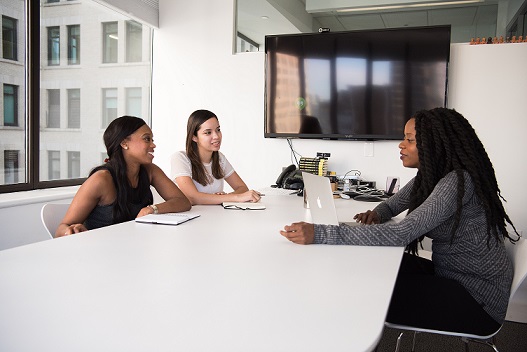As our previous blog mentioned, there has been a rise in popularity of Strengths Based Recruitment or SBR amongst graduate recruiters. This focus on a candidate’s strengths has been shown to lead to happier, more engaged and productive individuals and teams. For employers, this is the ideal way to identify the talent who will be a great match for the company in a role which is the ideal match for them!

This blog focuses on the employers view of strengths, why they moved to this approach and hints and tips they can provide for you.
What are employers’ views on Strengths Based Recruitment?
Since the emergence of Strengths Based Recruitment in the early 2000’s, the methodology has really grown and developed from its initial roots in positive psychology through to the over 60 validated strengths that have been identified today. With this being so popular as a recruitment approach for graduates and students we asked several employers why they adopted this approach;
Josh Carney from GSK said;
‘We moved to a strengths-based recruitment process a couple of years ago, deciding to focus on the potential and engagement of candidates. Our process ensures candidates are motivated by the role and the environment they will be working in. Furthermore, when assessing strengths we are looking at things candidates do regularly, do well, and they enjoy doing – when an individual uses their strengths they perform at their best, learn new information quicker, are more engaged and more productive. Assessing on the strengths and potential of an individual, rather than experience, also helps to remove barriers for those who have had fewer opportunities in the past and supports diversity and equality at the company.’
Melissa Hopper, Early Careers Talent Acquisition Manager at Mott MacDonald said they moved to strengths as it
‘helps us to identify a candidate realised strengths; things that they do well, find energising and use often, and unrealised strengths; things that they do well, find energising and use little. This enables us to look at future potential rather than what they have done in the past, therefore not disadvantaging students who may not have had as many opportunities and students who come from a privileged background.’
Rebecca Sinclair, Senior Associate – candidate attraction at EY stated
‘Technology continues to change the way we live and work, and because of this constant evolution, the strengths and traits we need to succeed have shifted. We measure all of our candidates based on core strengths. We want you to show us what you’re good at and how you can bring your core strengths to EY and make a real impact to the work we do. A strength is something you are naturally good at. Some you will know about, and some you might not be aware of yet, because you haven’t had the opportunity to explore them. Our interviews are designed to draw out those strengths and potential.’
Some examples of strengths based questions
There is no way of rehearsing your answers to strengths-based questions; they are unique only to you and may even differ on the day of the interview; meaning they are real-life, authentic answers which shows your strengths and your weaknesses. Examples include;
- What motivates you? – This question is looking to explore your passions and interests. They want to understand what gets you excited about an activity, goal or hobby.
- What would you say is a successful day? – This question looks to explore how you look at success. What success is to you, how you quantify success and can help identify your innate drivers.
- What would you say is your biggest weakness? – This question looks to see if you can identify your own limitations. Are you self-aware and can identify your own areas for improvement?
- What is always left undone on your to do list? – This question looks to explore areas which you do not enjoy doing
Although not being able to practice for a strengths-based interview may seem daunting, it is important to remember that there are no right or wrong answers, and that the interviewer is simply looking for you to be yourself. It is therefore crucial that you answer these questions honestly, as when you have a real enjoyment for the topic you are discussing it will be obvious.
Employers hints & tips for you;
To help you prepare, we asked some of our top employers who use this methodology to share their recommendations on preparing for a strengths-based assessment with you.
Josh from GSK recommends –
‘We are looking to get you know you as an individual, and your own strengths and interests. Therefore, answering the questions you are given authentically is key. Make sure to read up on the values of the company you are applying for, particularly for GSK as our values are integral to our process and what we are looking for in a candidate.’
Melissa from Mott MacDonald recommends –
‘To prepare for a strengths assessment you just need to think about what you like doing. There is no right or wrong answer in the assessment – you won’t know what strength we are assessing so we want total honesty throughout the assessment.’
Rebecca from EY’s top tip is –
‘You can prepare yourself by considering why you’d like to join EY, researching our programmes and familiarising yourself with the application process. I would highly recommend practising for the application process. There are lots of free sites online offering practise numerical reasoning tests. You can practise for video or interview stages by recording yourself speaking about your strengths and why you’d like to join EY, watch these back and spot areas you could improve on such as your pace of speech, making sure your points are clear and keeping your focus close to your webcam.’
